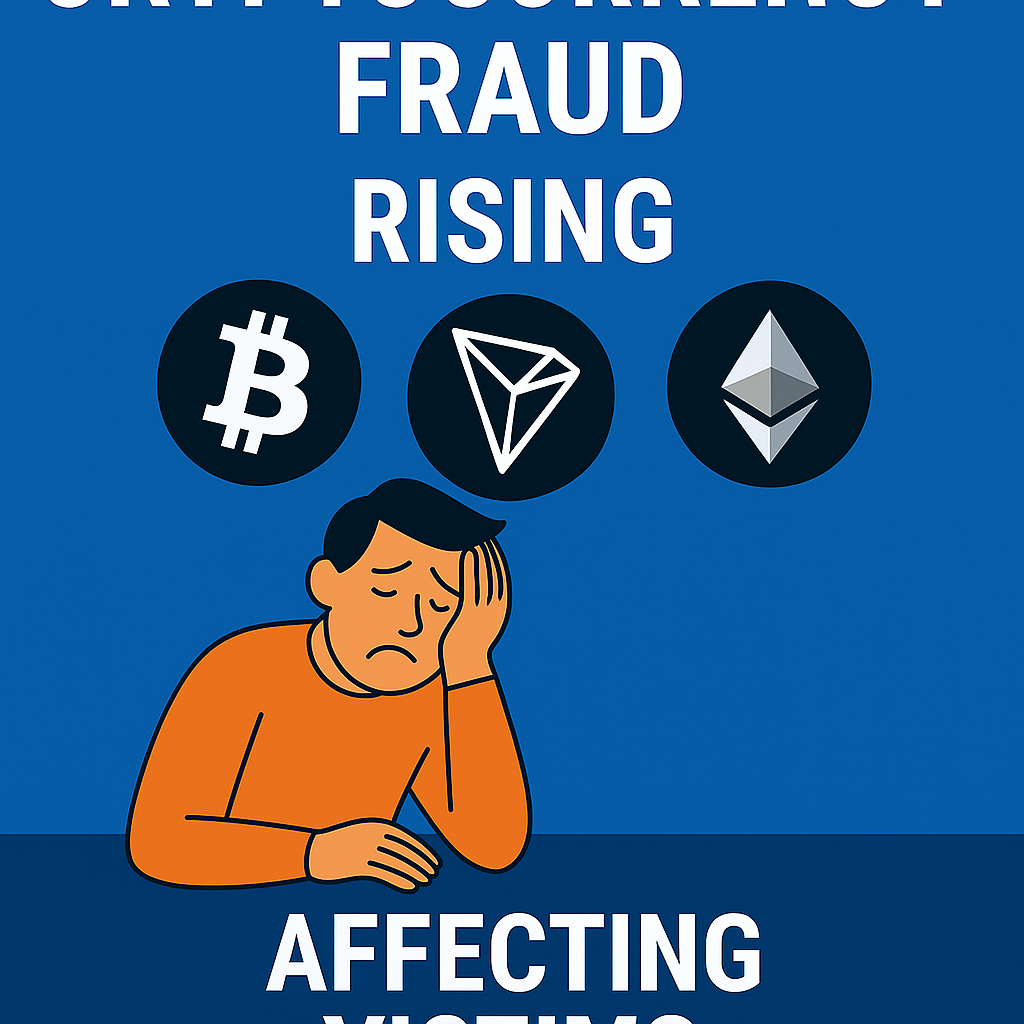Introduction
Cryptocurrency has revolutionized the financial world, offering decentralized transactions and digital asset ownership. However, with innovation comes risk—cryptocurrency fraud has surged, leaving victims devastated and uncertain about how to recover their lost funds. Scammers exploit the anonymity of blockchain technology, making it difficult for authorities to track and recover stolen assets.
In this comprehensive guide, we will explore:
✔ The latest trends in cryptocurrency fraud
✔ How scammers operate and deceive investors
✔ The impact of fraud on the crypto industry
✔ Regulatory measures and law enforcement actions
✔ How victims can seek justice and protect themselves
The Rise of Cryptocurrency Fraud
Why Is Cryptocurrency Fraud Increasing?
Cryptocurrency operates on decentralized networks, making transactions irreversible and difficult to trace. Scammers exploit this by:
✔ Creating fake investment platforms promising high returns
✔ Running Ponzi schemes that collapse after collecting funds
✔ Using phishing attacks to steal private keys and wallet access
✔ Impersonating crypto exchanges and influencers to lure victims
According to reports, crypto scams have cost victims billions of dollars, with fraudsters using sophisticated techniques to evade detection.
Common Types of Cryptocurrency Fraud
- Fake Trading Platforms – Fraudulent exchanges that disappear after collecting deposits.
- Rug Pulls – Developers abandon projects after raising funds.
- Phishing Attacks – Scammers steal login credentials through fake websites.
- Pump-and-Dump Schemes – Manipulating token prices before selling off holdings.
- Impersonation Scams – Fake customer support agents trick users into sending funds.
Victims often feel helpless, unsure of how to report fraud or recover their assets.
Latest Cryptocurrency Fraud Cases & Developments
1. Crypto ATMs Used for Scams & Money Laundering
Recent investigations have revealed that crypto ATMs are being exploited for fraud and money laundering. In Australia, financial crimes agency AUSTRAC has introduced new regulations to curb illicit activities.
✔ $3 million lost to crypto ATM scams in 12 months
✔ Older individuals are disproportionately targeted
✔ Authorities have refused to renew licenses for fraudulent ATM operators
2. Law Enforcement Cracks Down on Crypto Fraud
Authorities worldwide are taking action against cryptocurrency fraud. In Canada, police used new legislation to recover $80,000 stolen from a senior in a tech-support scam.
✔ Victim lost $110,000 in a phishing attack
✔ Police traced funds through blockchain transactions
✔ New laws allow digital asset seizure for fraud cases
3. Australia Tightens Crypto Regulations
Australia has introduced stricter controls on crypto ATMs, limiting cash deposits and withdrawals to $5,000 to prevent fraud.
✔ Crypto ATMs increased from 23 to 1,800 in six years
✔ Authorities warn that scammers are targeting vulnerable individuals
✔ Mandatory scam warnings and enhanced monitoring introduced
How Victims Can Seek Justice & Recover Lost Funds
1. Reporting Cryptocurrency Fraud
Victims should report fraud to:
✔ Local law enforcement agencies
✔ Financial regulators
✔ Crypto exchanges
2. Using Blockchain Analytics to Track Stolen Funds
Organizations like Chainalysis (Chainalysis.com) and Elliptic (Elliptic.co) specialize in tracking fraudulent transactions.
✔ Blockchain forensics can trace stolen assets
✔ Authorities use analytics to identify scam networks
3. Seeking Legal Assistance
Victims can work with law firms specializing in crypto fraud to recover lost funds.
✔ Legal experts help file lawsuits against scammers
✔ Regulatory bodies assist in fraud investigations
How to Protect Yourself from Cryptocurrency Fraud
1. Verify Investment Platforms
✔ Check for regulatory licenses before investing.
✔ Research platforms on Trustpilot (Trustpilot.com) and scam detection websites.
2. Secure Your Wallet & Private Keys
✔ Use hardware wallets for long-term storage.
✔ Enable two-factor authentication (2FA) on exchanges.
3. Avoid Get-Rich-Quick Schemes
✔ If an investment promises guaranteed high returns, it’s likely a scam.
✔ Be skeptical of unsolicited investment offers.
4. Report Suspicious Activity
✔ Use platforms like Digital Defenders Group to report fraud.
✔ Contact financial authorities and crypto exchanges.
Final Thoughts: The Future of Cryptocurrency Fraud Prevention
Cryptocurrency fraud continues to devastate investors, but authorities and blockchain experts are fighting back. By tracking fraudulent transactions, enforcing stricter regulations, and educating the public, the industry is working toward a safer crypto ecosystem.
If you or someone you know has been affected by cryptocurrency fraud, consider reaching out to Digital Defenders Group or blockchain forensic experts for guidance and support.

No responses yet